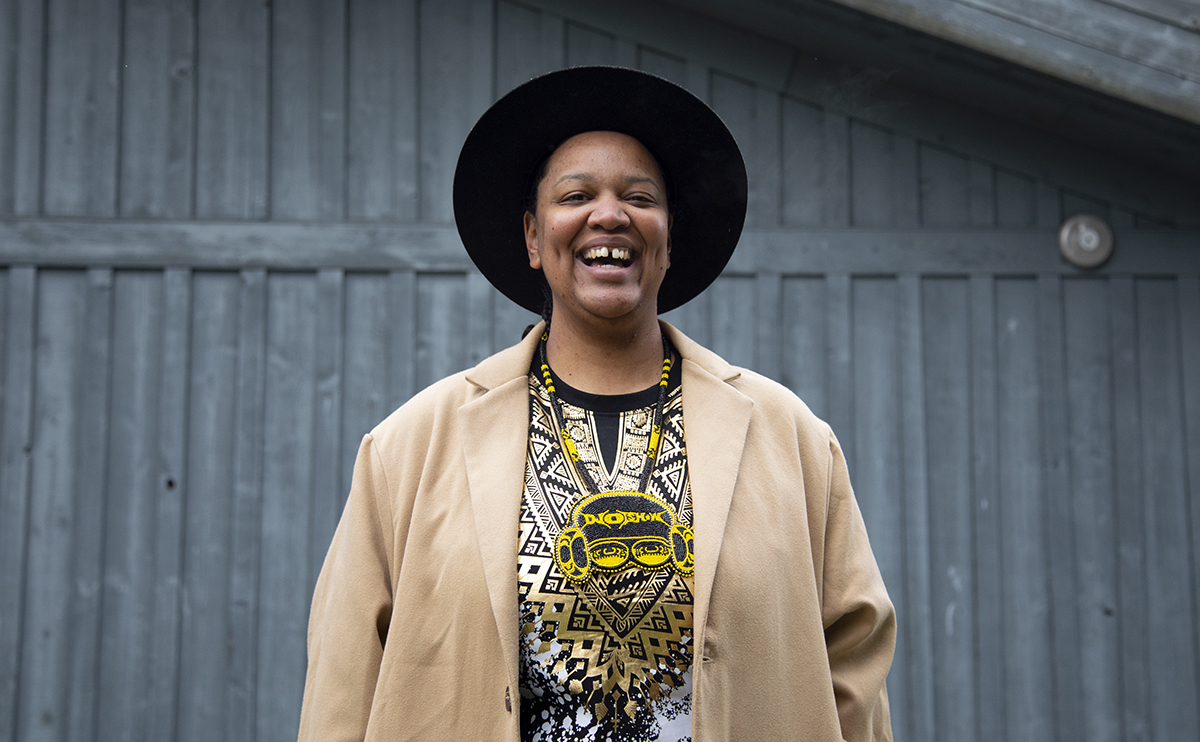Alumni Q&A: Michèle Ross
Published24 March, 2021
Photo credit Tae Hoon Kim
A trailblazer in her profession, Michèle Ross educates the community on the importance of paralegals.

Michèle Ross is a trailblazer who has elevated the paralegal profession. She was the first designated paralegal in British Columbia: now, she spends countless hours giving back to the paralegal profession, creating a path for others.
As President of the BC Paralegal Association (BCPA) and a resident columnist for The Verdict, the magazine of the Trial Lawyers Association of BC (TLABC), Ross educates the community on the importance of the paralegal profession. Her dedication has increased the number of designated paralegals in the province, resulting in more affordable legal services for those who need them.
CapU is proud to honour Michele Ross at the upcoming 2021 Alumni Awards of Excellence. Ross’ interview has been edited for brevity and clarity.
What is a paralegal, and what is the difference between a paralegal and a designated paralegal?
The Law Society considers a paralegal to be a “non-lawyer who is a trained professional working under the supervision of lawyer” (Code for Professional Conduct for BC). The Law Society of BC restricts lawyers from delegating work or holding someone out as a paralegal unless that person has sufficient knowledge, skill, training and experience, and is of sufficiently good character to perform the tasks delegated in a competent and ethical manner.
A designated paralegal can perform enhanced duties, under the supervision of a lawyer. This means designated paralegals are permitted to give legal advice and represent clients before tribunals (as permitted) and at family law mediations. Paralegals who are not “designated paralegals” are not permitted to perform these enhanced duties.
What impact do you feel you are making as a designated paralegal?
It allows me to be a part of addressing the access to justice problem in our province by assisting clients who might otherwise not be able to afford the cost of a lawyer. Being a designated paralegal gives clients the opportunity to obtain competent and cost-effective legal services.
Can you tell us how you have been able to increase the awareness around what paralegals do?
I am active and involved in paralegal-related activities outside of my role at work. Whether it is presenting at a course, chairing (or co-chairing) a course, writing a paper or article or being interviewed for an article — these are all things that help raise awareness of paralegals.
I have presented or chaired many paralegal courses both for the Continuing Legal Society of B.C. (CLEBC) and TLABC over the years. A paralegal colleague and I take turns writing a column called “Paralegal Perspective” which appears in the TLABC’s publication, The Verdict. The articles focus on topics relevant to paralegals.
I think there are still people in the legal profession who do not know the value that paralegals bring and there are misconceptions in the public about what a paralegal can do. It is satisfying to play a role in helping educate people about the profession.
What do you love most about being a family law paralegal?
Being able to help clients during emotional times. Divorce is one of the most stressful experiences to go through, and I am a part of helping clients through that. It is rewarding to know I have helped someone through that difficult and challenging experience. And the opportunity to continuously learn — each day is different.
How did you get to where you are today?
I think it comes down to being passionate about what I do. As a paralegal, one can learn the rules relating to the area of law in a particular area of practice. However, passion cannot be learned. You either have it or you do not.
Dedication. I have dedicated my career to the area of family law at mostly one firm. My advice is to choose an area and dedicate yourself to it and you will excel.
Hard work. You cannot be successful without putting in the time and hard work.
You volunteer countless hours without remuneration. Why is it so important for you to give your time so charitably?
In terms of being on the Board of the BCPA, I think it is important to be a part of the organization that works to advance the recognition of paralegals in B.C. I also think it is important to be part of the paralegal community and to create a voice for paralegals.
I like collaborating with other paralegals on the Board of the BCPA to make decisions concerning the Association. I enjoy working alongside other paralegals in creating educational programs. I think it is important to become a part of those opportunities to raise the profile of paralegals in our province.
What advice do you have for anyone considering applying to the paralegal programs at CapU?
Research the programs available (Paralegal Certificate, Paralegal Diploma, Bachelor of Legal Studies) and choose the program that best suits you. Look at the specifics of each — pre-requisites, length of program, online vs. onsite, etc.
Once you complete your studies, research the firm or lawyer you are considering for employment. Look at becoming a member of the BCPA to take advantage of membership benefits; free professional development courses, access to the annual salary survey, opportunities (in non-COVID times) to interact and network with other paralegals.
Being part of a professional association gives the opportunity to connect with others in the industry and talk about the nature of the profession, which will increase your knowledge base and build relationships and resources.
Always continue to develop your skills as a paralegal, even after you complete your studies at CapU. Take advantage of further learning opportunities so that you continue to grow as a paralegal. Embrace your chosen profession!
What legacy do you hope to leave in your field?
One of the issues that has been considered for many years is the regulation or licensing of paralegals in B.C. Paralegals in Ontario are permitted to work independently of lawyers and are licensed and regulated by the Law Society of Ontario. This is not the case in B.C, where paralegals must work under the supervision of a lawyer.
The Law Society of BC recently introduced the innovation sandbox initiative, inviting individuals, businesses and organizations who are not lawyers to come to the Law Society with proposals to provide legal services to address the unmet need for legal advice. Paralegals can apply to the Law Society to operate within the innovation sandbox. That is a step forward in expanding the scope of paralegals. I would like my legacy to be that I am a part of getting paralegals to a more structured licensing regime, so that paralegals have the option (should they choose) of working independently from lawyers, like the Ontario model.



